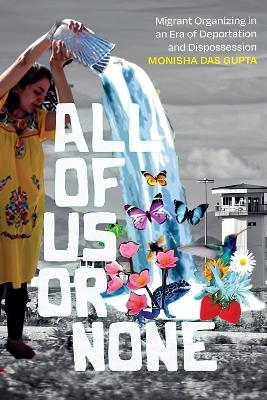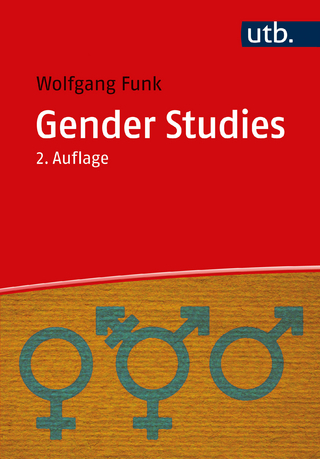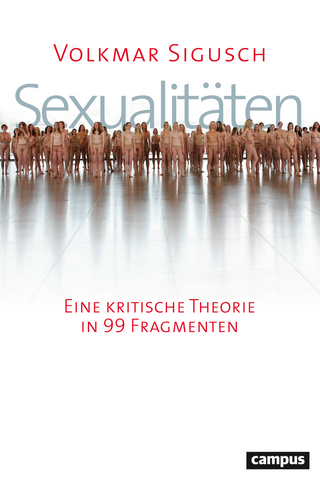
All of Us or None
Migrant Organizing in an Era of Deportation and Dispossession
Seiten
2024
Duke University Press (Verlag)
978-1-4780-3087-4 (ISBN)
Duke University Press (Verlag)
978-1-4780-3087-4 (ISBN)
Monisha Das Gupta tells the story of contemporary antideportation organizing in the United States by migrants and refugees labeled as criminal aliens who conceptualize immigrant rights as an abolitionist vision of migration justice that rejects the settler state and encompasses all those who are disavowed.
In All of Us or None, Monisha Das Gupta tells the story of contemporary antideportation organizing in the United States by migrants and refugees labeled as criminal aliens. These activists, who live daily with criminalization, work against forms of deportation that Das Gupta calls settler carcerality—the United States’ use of deportation to exert territorial control in the face of Indigenous self-determination. Drawing on fieldwork with antideportation organizing groups in New York, Los Angeles, Long Beach, and Honolulu, Das Gupta documents the inventive methods of struggle against settler carcerality. Das Gupta shows how the organizers’ actions and visions depart from the settler colonial nature of the mainstream demands for a pathway to citizenship and civil rights. Through direct action, storytelling, political education, and youth and queer leadership, these organizations and collectives conceptualize an abolitionist vision of migration justice that rejects the settler state and encompasses all those who are disavowed. By highlighting this work, Das Gupta demonstrates the transformative promise offered by a dissident migrant-led politics working toward dismantling settler structures and logics.
In All of Us or None, Monisha Das Gupta tells the story of contemporary antideportation organizing in the United States by migrants and refugees labeled as criminal aliens. These activists, who live daily with criminalization, work against forms of deportation that Das Gupta calls settler carcerality—the United States’ use of deportation to exert territorial control in the face of Indigenous self-determination. Drawing on fieldwork with antideportation organizing groups in New York, Los Angeles, Long Beach, and Honolulu, Das Gupta documents the inventive methods of struggle against settler carcerality. Das Gupta shows how the organizers’ actions and visions depart from the settler colonial nature of the mainstream demands for a pathway to citizenship and civil rights. Through direct action, storytelling, political education, and youth and queer leadership, these organizations and collectives conceptualize an abolitionist vision of migration justice that rejects the settler state and encompasses all those who are disavowed. By highlighting this work, Das Gupta demonstrates the transformative promise offered by a dissident migrant-led politics working toward dismantling settler structures and logics.
Monisha Das Gupta is Professor in the Departments of Ethnic Studies and Women, Gender, and Sexuality Studies at the University of Hawaiʻi at Mānoa. She is the author of Unruly Immigrants: Rights, Activism, and Transnational South Asian Politics in the United States, also published by Duke University Press.
Preface ix
Acknowledgments xxi
Introduction. Deportation as Settler Carcerality 1
1. “All of Us or None” 27
2. “It Is Our Moral Responsibility to Disobey Unjust Laws” 54
3. “Don’t Deport Our Daddies” 82
4. “Deportation=Genocide” 109
5. NotDREAMing 136
Conclusion. Jailbreak 167
Notes 171
Bibliography 207
Index 239
| Erscheinungsdatum | 06.08.2024 |
|---|---|
| Zusatzinfo | 18 illustrations |
| Verlagsort | North Carolina |
| Sprache | englisch |
| Maße | 152 x 229 mm |
| Gewicht | 445 g |
| Themenwelt | Sozialwissenschaften ► Ethnologie |
| Sozialwissenschaften ► Soziologie ► Gender Studies | |
| ISBN-10 | 1-4780-3087-9 / 1478030879 |
| ISBN-13 | 978-1-4780-3087-4 / 9781478030874 |
| Zustand | Neuware |
| Haben Sie eine Frage zum Produkt? |
Mehr entdecken
aus dem Bereich
aus dem Bereich
wie sich das weibliche Gehirn jetzt verändert und Sie diese neue …
Buch | Hardcover (2023)
Mosaik (Verlag)
24,00 €
eine kritische Theorie in 99 Fragmenten
Buch | Softcover (2023)
Campus (Verlag)
40,00 €


